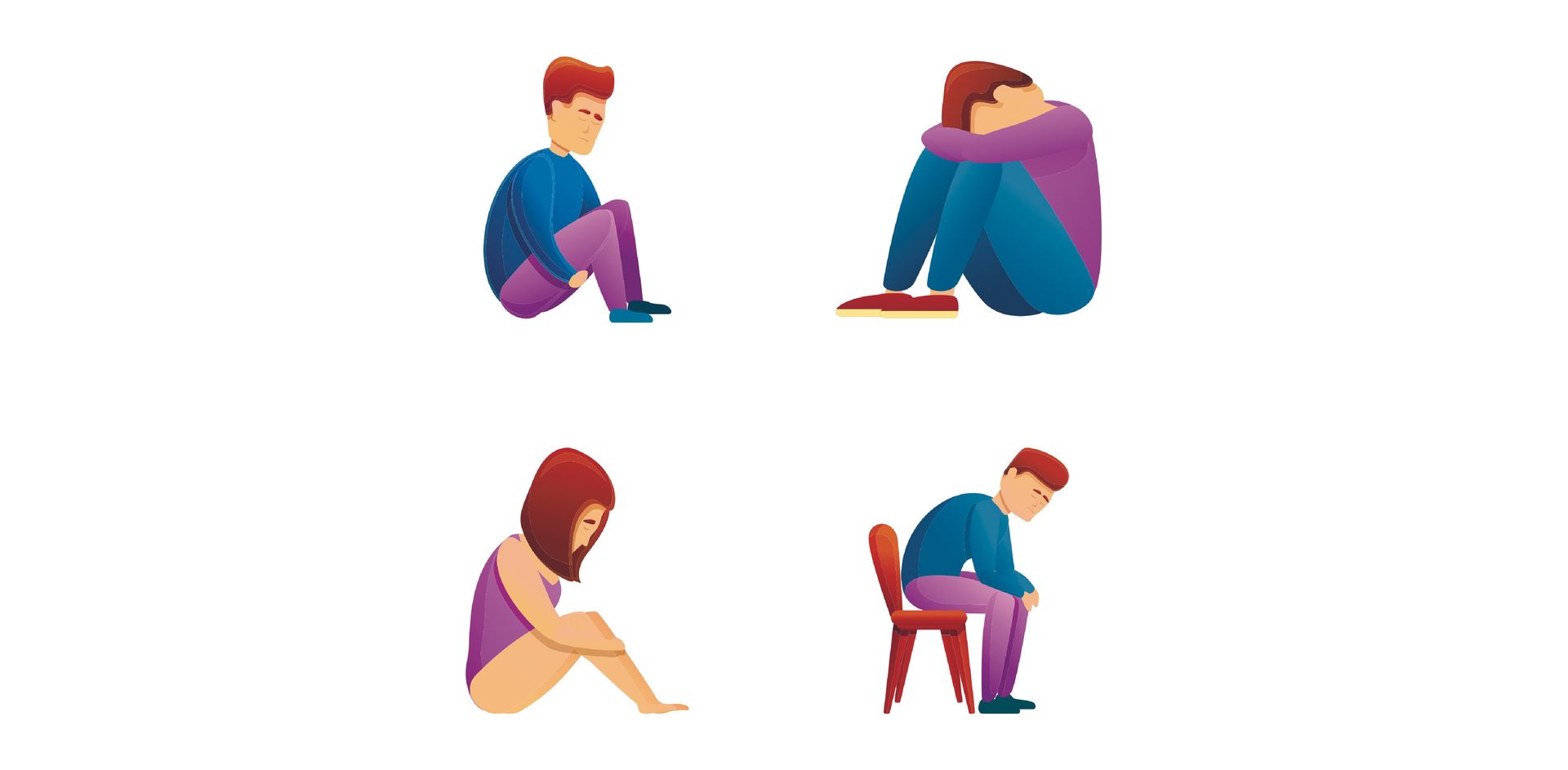INTERVIEW ON THE TOPICS OF MIDLIFE CRISIS, EMPTY NEST AND AFFAIRS - The interview was conducted by Diana Posner
INTERVIEW ON THE TOPICS OF MIDLIFE CRISIS, EMPTY NEST AND AFFAIRS
The interview was conducted by Diana Posner, founder of reality bites
DP: Everyone is talking about midlife crisis. Could you explain how the topic makes itself felt?
Ellerbrake: The midlife crisis describes a feeling that comes on gradually. An inner dissatisfaction makes itself felt, although at least on the outside everything seems to be OK. It is not really tangible and triggers insecurity in those affected.
Sometimes it is the departure of the children or the loss of a parent that shows us that we are the next generation, the "older" ones. And as we all know, getting older and midlife crisis go hand in hand. Some people have received a diagnosis from the doctor that turns their life upside down. Everyone represses the fact that it can also affect them instead of always affecting others. We become aware that life can be in danger very quickly. It does something to you.
But a midlife crisis also has positive aspects. You've reached a point in your life where you ask yourself what's to come. And you think about what you would like to change and what you can change. That's basically not a bad thing! But admittedly, the word crisis has a rather negative connotation.
DP: What areas are affected by a midlife crisis? Can you put it into categories in any way?
Ellerbrake: If I take the "system" of the family, things are constantly changing. Children are babies and toddlers, then they slowly grow up, become fledglings, then move out at some point. Of course, this is summarised somewhat "time-lapse-like". But in these, let's say, 20 years of accompanying children, a lot happens, which can certainly be divided into different phases.
When children leave home, parents ask themselves: where do our "tasks" actually lie now? This question often plunges mothers in particular into a crisis, because they have identified more strongly with raising children and managing everything around them. The fact that this task is now virtually gone is a drastic experience.
I like the expression “empty nest” because a nest is something beautiful and symbolises security. In counseling, I make it clear to the parents that it is something beautiful that the children leave the nest and build their own. Just as the parents did when they moved out. Pointing out this natural cycle often calms the nerves ;-) Of course we want to give our children wings, which you read so often on birth cards. But actually, letting them go is often harder than expected.
In the new situation, fathers often throw themselves into work or sporting activities to compensate for the "loss". They may then be even more absent from their wives, which was otherwise not noticeable at all. Children create a lot of hustle and bustle and distractions in the house.
As we all know, it is easier to leave than to stay. New impressions, new surroundings, new friends, all that is exciting and any homesickness is often quickly forgotten. So, the children may have a clear advantage. For some of my clients, old dreams come back to life, not infrequently the career they had put on hold because of the children.
DP: Do the symptoms all come at once or are there certain signs? And how can you counteract them?
Ellerbrake: We all know that a certain situation has to occur first before we act. And then you start to reflect on yourself and the issue. In my practice, I observe that more and more couples deal with issues of change at an early stage. Others completely repress them because they are not there for them at all. But when they do come up, people start to rotate and seek counselling. This can be a whole new opportunity for the couple relationship, after all, the departure of children, for example, goes hand in hand with completely new freedoms.
Often one's own interests are pushed into the background by the children's activities. Many revive old hobbies or start a joint hobby, travel more and simply spend more time together. But sometimes it is also the case that you first have to get to know your partner again. A client once said to me: "My goodness, my husband has got quite old!” That's with a smiley face, of course, but I think it sums it up quite well. The couple has often lost sight of each other and needs to find each other again.
DP: But you hear and experience the most adventurous stories when a man or woman has a mid-life crisis: a new hairstyle, an affair, plastic surgery, weight loss, sports mania, and so on. That's not so funny for your partner. Do you see a development in society that is going in a certain direction?
Ellerbrake: I think that the topic of midlife crises was not discussed in the same way in the past or that there was no term for this phenomenon. But the topic is not new. Divorce rates have risen rapidly, it is now more socially accepted to separate. It was different in the past, people tended to move on and were prepared to put up with more. Financial dependencies are no longer as prominent as they used to be. In past decades, it was not so easy for women to separate. The reason for this is that men were often the sole breadwinners and mothers did not work at all or worked less and were less likely to stand on their own two feet financially.
A theme I often encounter in my practice - and this is also a midlife crisis phenomenon - is having an affair. This is nothing new either, because affairs have always existed. They still belong in the taboo zone today. What has changed is the willingness of couples to work on their relationship despite this breach of trust. The couples reflect on the issue in a completely different way, want to find out what led to the cheating and quite often couples emerge from such a crisis stronger. The crisis can therefore be an opportunity for the relationship. And it can open the way for a new partnership - with the same partner. In practice, of course, there are also cases where this does not succeed and the couple separates. Then the affair was often the final trigger.
DP: Is that a kind of free pass for an affair? Or to put it somewhat heretically: isn't it all so bad after all? How do you manage to get rid of this abuse of trust and the lies?
Ellerbrake: I would definitely not say that it's all not so bad. When an affair is discovered, the ground is pulled out from under the feet of the person who has been betrayed. It can take a long time to rebuild trust, that is very individual. And as is usual with wounds, the wound caused by an affair can tear open again and again in the person who has been betrayed.
DP: If both partners want to work on the relationship, that's positive. What advice do you give to couples when one wants to work on the relationship and the other doesn't?
Ellerbrake: Sometimes the cheating partner has been on the way out for a long time and the affair was just the last drop in the bucket to get out of the relationship. In that case, as the saying goes, don't stop a traveller. Of course, it's not that easy, especially when children are involved. On the other hand, the partner should want to stay voluntarily. No one wants to persuade the other to stay.
DP: I would like to come back to how it is possible to bring the couple back together despite the affair. How do you work to make this happen and where are the stumbling blocks?
Ellerbrake: An affair does not come out of nowhere. The person having an affair often does not feel seen in the partnership, there is little or no physical closeness, little or no sex, too much everyday life, too little attention to the other person, only "orga-talk" instead of conversations about wishes and needs - the list can be continued indefinitely. An adventure, a tingling in the belly (which you haven't had for a long time) is just what you need.
When an affair is discovered, the lives of both are turned upside down. It takes a while to digest this initial shock, and in the first conversations I give the partners space to express their hurt. I try to steer the discussion away from the victim/perpetrator idea. And even if it hurts the cheated-on person - the cheating partner can also have enormous heartache (it is a taboo to express this).
Often the partners listen to each other properly for the first time when the affair was discovered. In the next step, we try to clarify what the other person missed, what the affair meant to him/her, how the cheater felt, whether he/she had a guilty conscience, etc. These questions are upsetting, but enormously effective. It is not advisable to probe the cheated-on person for details: when, where and how often did you meet? how did you do it? You can't get rid of the film in your head and it all hurts even more (even though it's not easy not to give in to the reflex of wanting to know everything). Unfortunately, nowadays, due to the interconnectedness of mobile phones and computers, it is often the case that the partner's affair is fully revealed to the cheated party (and not infrequently to children!), e.g. when a device is changed on a shared computer. This can be traumatic.
Once the couple has gone through the painful processing, the relationship is often on a completely different level. But I also make it clear to the couples that there is no guarantee that the same thing won't happen again (perhaps to the other partner?). I then always say: whoever loves always runs the risk of being hurt. It is useful to keep this in mind. Even if a couple has never had a serious crisis, it can happen at any time.
There is one more thing I would like to add. An affair is to some extent also an illusion. It offers a way to escape from everyday life, all the nagging issues hardly take place there. However, when the affair becomes a relationship, everyday life returns and the partners encounter issues that seem familiar to them.
DP: We have now discussed the issues of "moving on to the next generation" and "affairs". What other aspects are there to a midlife crisis? Can we also find positives in it?
Ellerbrake: Quite. We humans are often focused on external things like consumption, material wealth or great experiences, wanting to please other people and meet their expectations. Through this fixation on externals, we have forgotten to feel our true feelings. The mid-life crisis is a good opportunity to deal more with one's inner self again: why did I take a certain path? where do my self-doubts lie? where do I have inner blocks? This inner work is often uncomfortable, but it brings people forward.
DP: Another aspect of a midlife crisis can be the loss of a job and the associated financial worries. What is your experience?
Ellerbrake: It's definitely a big issue. Especially when it happens at the typical age of mid/late 40s, early 50s. Some people have to go through the painful experience that they already belong to the old iron and that it is very difficult to get a new, challenging job. Or if the mother has not worked for a while, she finds that she cannot find a fulfilling job despite being well qualified. That does something to the self-worth.
With some women I work with, who never wanted children and chose a career, I often observe when they lose their job that they question or even regret their decision. The ticking of the biological clock is there, no matter how firm the decision against children was. This is a big challenge for some women in midlife.
DP: The reasons for a midlife crisis are very complex, as we have seen. We could certainly think of many more aspects. For me, as a woman in my mid-forties, I can say that the individual phases of life have done something to me. And it is certainly not unusual to take stock of one's personal life, regardless of children, job, financial situation and partnership. The direct and undisguised look in the mirror not only shows one or two wrinkles, but also one's own personal development. The view goes backwards, but also forwards. In other words, one asks oneself whether one is on the right path or whether something else is waiting for us? Whether what we are currently doing is fulfilling? Questions upon questions...
Ellerbrake: Many people ask themselves this question when they think about separation. What will happen if I leave? Many people find it difficult to make decisions. Because what actually happens if I leave? You can't run a parallel scenario and see what happens. However, decisions inevitably lead to changes and you take a “risk”, so to speak. I encourage my clients to reflect on the fact that the decision they are making is the right one at the time. Otherwise they would have decided against it.
DP: What do you think about the much quoted "best version of myself"?
Ellerbrake: This "best version of myself" also goes through different phases. If I think I'm this best version when I'm 30, I may see it very differently when I'm 40 or later. Ideally, we continue to develop in the different phases of life. We grow with our challenges. And that is a good thing.
In my practice, I have observed that one partner develops much faster and the other may not even see the need for personal development. This can sometimes lead to an imbalance in the couple's relationship. Couples counseling is a great way to continue growing as a couple
I would be happy to support you in overcoming individual and family challenges. Please feel free to send me a message (link).










